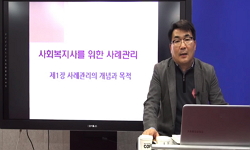Objective: The purpose of this study is to identify the provision of service for single mothers and changes in the characteristics of single mothers from the viewpoint of practitioners of single parent family welfare facilities and to contribute the q...
http://chineseinput.net/에서 pinyin(병음)방식으로 중국어를 변환할 수 있습니다.
변환된 중국어를 복사하여 사용하시면 됩니다.
- 中文 을 입력하시려면 zhongwen을 입력하시고 space를누르시면됩니다.
- 北京 을 입력하시려면 beijing을 입력하시고 space를 누르시면 됩니다.

한부모가족복지시설에 입소한 여성 한부모의특성 변화와 복지서비스 제공에 대한 시설 실무자의 인식 = Perception of Staff at Welfare Facilities for Single-Mother Families on Changes in the Characteristics of Single-Parent Residents and the Provision of Services
한글로보기https://www.riss.kr/link?id=A109125421
- 저자
- 발행기관
- 학술지명
- 권호사항
-
발행연도
2024
-
작성언어
Korean
- 주제어
-
등재정보
KCI등재
-
자료형태
학술저널
- 발행기관 URL
-
수록면
419-442(24쪽)
- 제공처
-
0
상세조회 -
0
다운로드
부가정보
다국어 초록 (Multilingual Abstract)
Objective: The purpose of this study is to identify the provision of service for single mothers and changes in the characteristics of single mothers from the viewpoint of practitioners of single parent family welfare facilities and to contribute the quality of single parent welfare services. Methods: After individual or group in-depth interviews with five senior social workers working at a single parent welfare facility in Jeollabuk-do, qualitative data was conducted. Results: Participants recognized that the overall admission rate of single parents entering the facility decreased, but the admission of single parents with a combination of psychological and mental disabilities increased. In addition, the participants emphasized the need to respond to changes in the social environment and the need to strengthen the network, and worried about the deterioration of mental and physical health due to workload and emotional labor. Conclusions: First, to cope with the increase of single mothers with serious or complex problems, it is necessary to expand the number of specialized personnel in the facility and the network of related organizations should be activated. Second, systematic manuals for workers and single parent should be developed. Third, central and local governments should set a reasonable budget for the cost of improving the residential environment. Fourth, programs to prevent burnout by emotional labor of workers in facilities shoud be carried.
동일학술지(권/호) 다른 논문
-
국내 언론에 보도된 아동 관련 E-sports에 대한 빅카인즈 분석
- 한국아동가족복지학회
- 이은정
- 2024
- KCI등재
-
후기 아동기 자녀를 둔 어머니의 수치심에 관한 근거이론적 접근*
- 한국아동가족복지학회
- 강희영
- 2024
- KCI등재
-
중학교 기술·가정 교과서에 제시된 청소년 정신건강 문제 관련 질적 내용분석*
- 한국아동가족복지학회
- 김혜영
- 2024
- KCI등재
-
고등학교 청소년과 고등학교 학령기 학교 밖 청소년의 주의력결핍 과잉행동이 진로성숙에 미치는 영향과 우울의 매개효과
- 한국아동가족복지학회
- 이재경
- 2024
- KCI등재
분석정보
연관 공개강의(KOCW)
-

Involving Parents: Making a Difference: Parental Involvement Worker
Teachers TV Teachers TV -

골드칼라(Gold-collar worker) 시대, 어떻게 준비해야 할까요
신한대학교 신종우 -

왜, 코로나19 이후 스팟워커(Spot Worker)가 급증하고 있을까요
신한대학교 신종우 -

사례관리론
남부대학교 김영춘 -

글로벌 인재포럼 2007: 세계화, 외국인 노동자 그리고 임팩트
글로벌 인재포럼 Philip Martin, Manolo Abella, Stephen Castles




 KCI
KCI 스콜라
스콜라

